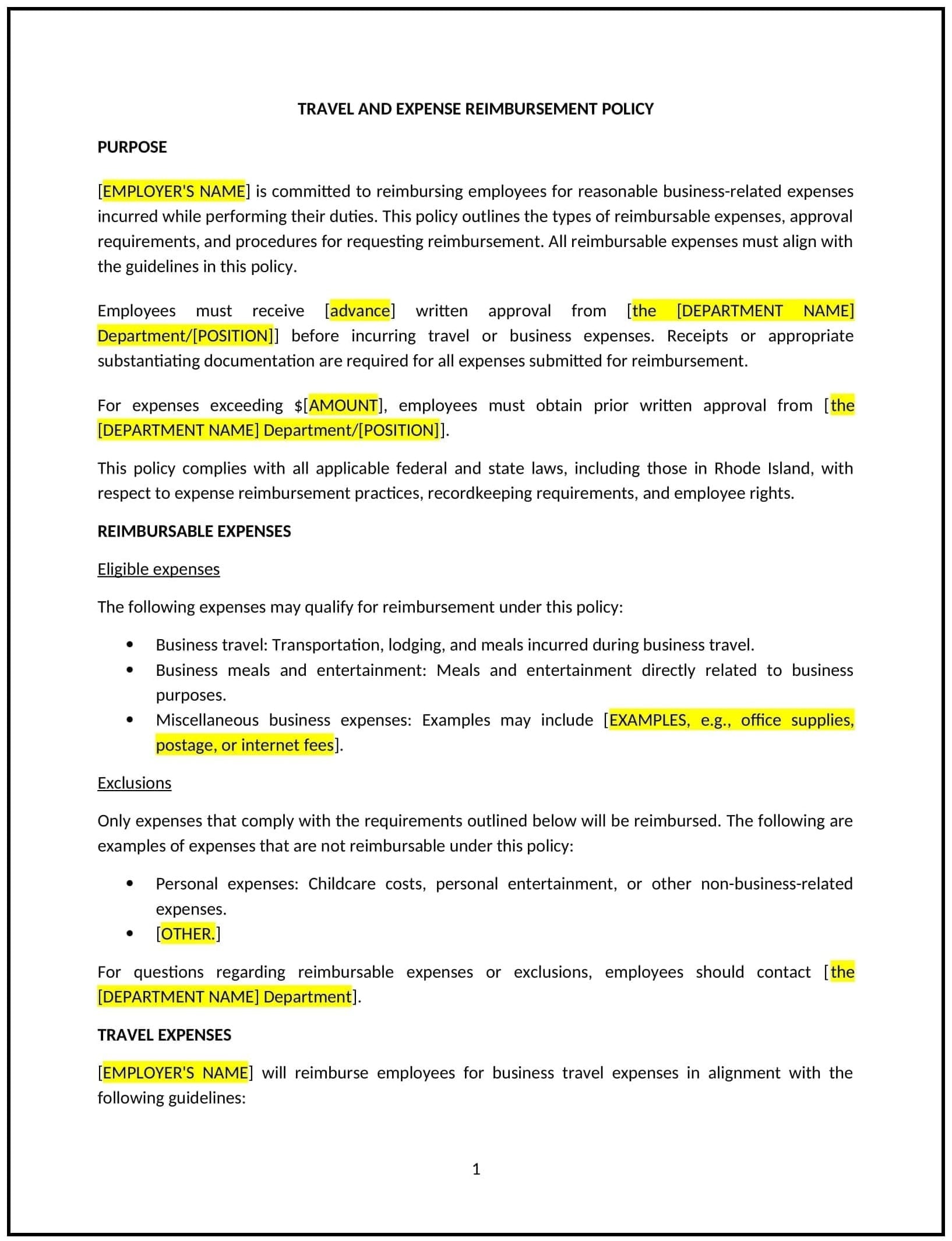Travel and expense reimbursement policy (Rhode Island): Free template
Got contracts to review? While you're here for policies, let Cobrief make contract review effortless—start your free review now.

Customize this template for free
Travel and expense reimbursement policy (Rhode Island)
This travel and expense reimbursement policy is designed to help Rhode Island businesses establish guidelines for employees incurring expenses during business travel. It outlines procedures for submitting expense reports, eligible expenses, and reimbursement timelines.
By adopting this policy, businesses can ensure transparency, control costs, and support employees during business travel.
How to use this travel and expense reimbursement policy (Rhode Island)
- Define eligible expenses: Clarify what expenses are reimbursable, such as airfare, lodging, meals, and transportation.
- Set submission procedures: Outline steps for employees to submit expense reports, including required documentation.
- Address reimbursement timelines: Specify how long employees can expect to wait for reimbursement after submitting an expense report.
- Establish spending limits: Set limits on expenses, such as daily meal allowances or hotel rates.
- Train managers: Educate supervisors on reviewing and approving expense reports.
- Review and update: Assess the policy annually to ensure it aligns with evolving business needs and employee expectations.
Benefits of using this travel and expense reimbursement policy (Rhode Island)
This policy offers several advantages for Rhode Island businesses:
- Ensures transparency: Provides clear guidelines for employees, reducing confusion and disputes.
- Controls costs: Sets spending limits and ensures expenses are reasonable and necessary.
- Supports employees: Reimburses employees for legitimate business expenses, reducing financial burden.
- Aligns with best practices: Offers a structured approach to managing travel and expenses.
- Enhances trust: Demonstrates the business’s commitment to fair and timely reimbursement.
Tips for using this travel and expense reimbursement policy (Rhode Island)
- Communicate the policy: Share the policy with employees and include it in the employee handbook.
- Provide training: Educate managers on reviewing and approving expense reports.
- Monitor compliance: Regularly review expense reports to ensure adherence to the policy.
- Address issues promptly: Take corrective action if expenses are submitted improperly or exceed limits.
- Update regularly: Assess the policy annually to ensure it aligns with evolving business needs and employee expectations.